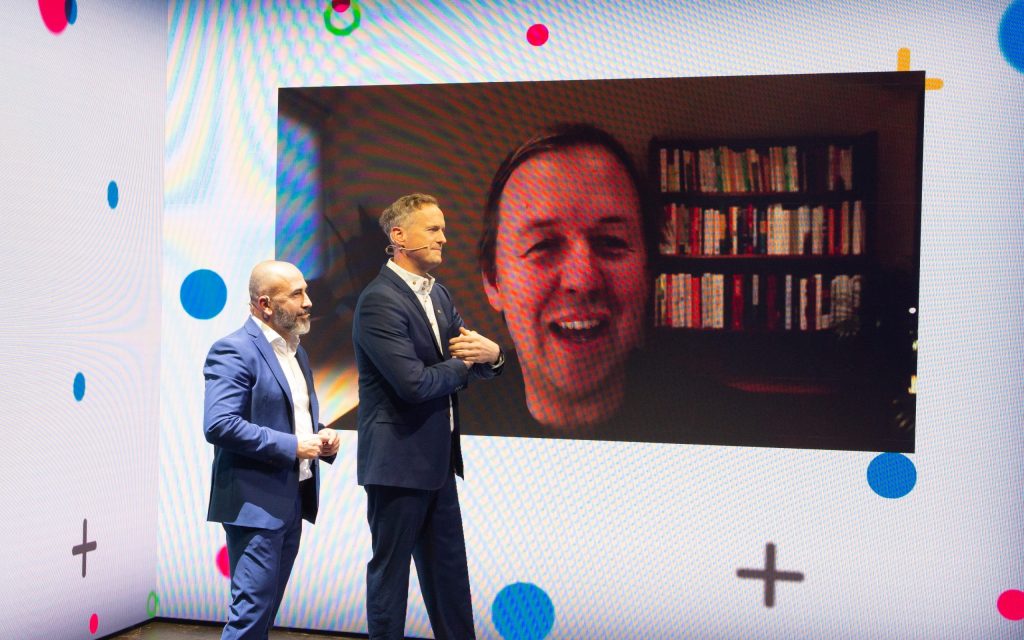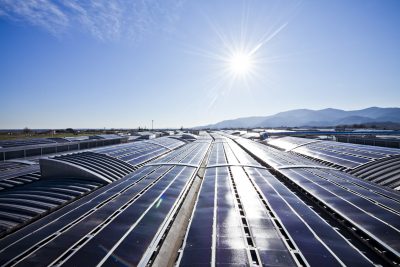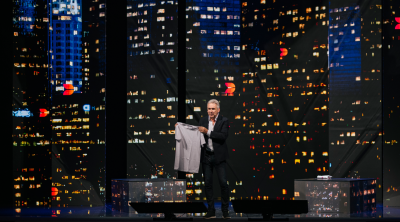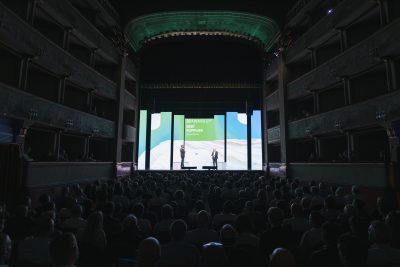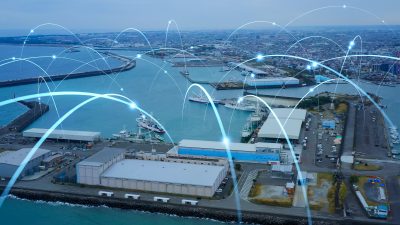Tom Rivett-Carnac is the founding partner of Global Optimism, co-presenter of climate podcast, Outrage + Optimism, and co-author of The Future We Choose: The Stubborn Optimist’s Guide to the Climate Crisis. In his keynote address at the Sofidel 2021 3SAwards on Monday 6 December, he addressed his recent thoughts on COP26 in Glasgow, UK, where he sees climate change heading, and what society can do to resolve the underlining issue
It’s remarkable how Sofidel and its suppliers are working together to deliver real change – with sustainability at the center. Integrating climate leadership into business relationships is one of the main reasons why we’re beginning to deal with the climate crisis. Although we aren’t there yet, the progress is undeniable.
Conclusions from COP26
After returning from COP26 in Glasgow, a lot has been said about what was and wasn’t achieved. The complexity of the meeting was captured to me by two statements that I heard from two different leaders within 30 minutes of each other at the end of the first week. John Kerry, the US Special Presidential Envoy for Climate, spoke out and said, “We are on the brink of history. Future generations will look back on this moment as a turning point in turning the tide against climate change.”
Greta Thunberg stood, up less than 30 minutes later, and said, “COP26 has failed utterly.” The interesting thing about these statements is that they are contradictory, but both are arguably true. In my capacity as head of political strategy for the UN, I was responsible for negotiating the [2015] Paris Agreement, which was supposed to set in motion a process that would decarbonize the global economy by the middle of the century. Although reaching an agreement was difficult for many reasons, the principle of fairness was one of them.
Climate change is fundamentally unfair. The countries that have done the least to cause this crisis would argue that it is unjust to ask them to solve a problem they did not cause, and thereby lose their chance to build the kind of strong economy that rich countries have already achieved. We can only solve this problem together, since most of the current pollution comes from countries like China, India, and Brazil. It must therefore be a global alliance.
We have a unique mechanism in international law to solve that problem, where we have a long-term goal to reach net zero by the middle of the century, and sequential five-year plans that will eventually get us there. Coming out of Paris, we now have the aim to limit global warming to 1.5°C as part of this long-term goal, but short-term policies that the countries implemented would have taken us to nearly 4°C. Although we were concerned, we hoped that after five years, for short-term targets, technology would have improved, younger populations would have reached voting age, economics would have changed, and renewables would have become more affordable. But honestly, the impacts would have gotten worse.
All of this would mean a greater commitment to increase short-term commitments and align them with long-term goals. Many countries did return to the table, about 100 countries increased their national commitments. As you add all of that up, it brings the temperature pathway we’re on closer to 2.5°C of warming rather than nearly 4°C.
That’s the good news. Secondly, a range of shared commitments were made in Glasgow on forests, methane, coal, and other topics. If these are added to the national commitment, the threshold may be closer to 1.8°C once it’s all added up. That’s even better. We also realized we haven’t yet done enough. Whether it’s 2.5, or 1.8°C, that’s still way too high. Therefore, countries were asked to come back – not in five years – but next year, to make further commitments to try to close the gap.
The ratchet mechanism is working, the temperature trajectory is coming down and we’re managing the economic trajectory of our planet – and moving it towards safety. But now, let’s broaden our lens a bit and think about where we really are. We are in the middle of the most important decade in human history. The eight years that lie ahead will determine the quality of life on the planet for thousands, if not hundreds of thousands, of years to come.
“We are in the middle of the most important decade in human history. The eight years that lie ahead will determine the quality of life on the planet for thousands, if not hundreds of thousands, of years to come”
Tom Rivett-Carnac
Furthermore, Glasgow’s actions are merely pledges. The only way they have any real meaning is if they are implemented. Governments in Glasgow committed to ending deforestation, which is great, but they also committed to it in 2014 and since then, deforestation rates have increased by 43%. We’re getting closer to real policies, but we’re not there yet.
One of the most important outcomes from Glasgow was the commitment that countries would come back in 12 months with new commitments that would bring us closer to the goal of limiting global warming to 1.5°C. This is a huge opportunity for us all. Governments will not go faster than they feel they can, based on supporting their own economies. In this, national policy has a unique role. Governments are more likely to go further and faster on climate solutions if they see that businesses are leading and investing, creating jobs, and finding solutions.
Achievements still to be made
Therefore, this is the year to accomplish three things. The first step is to make a bold and ambitious commitment, which is crucial for big companies. It is equally important for small businesses, which are the drivers of employment in an economy that is net zero as soon as possible, by 2040 or earlier, to sign on to a strong climate pledge with strong interim targets.
Sofidel’s commitment to science-based targets is a great example of this; it’s time to take bold action. Develop your skills to talk about the leadership you’re already demonstrating. Your transparency on your commitment is going to be more important for showing that you’re serious about this as well as for convincing others. There is a serious breakdown in trust between activists and those who are interested in what corporations are doing, as we saw in Glasgow. We can resolve this by showing corporations that they are serious.
“Sofidel’s commitment to science-based targets is a great example of this; it’s time to take bold action. Develop your skills to talk about the leadership you’re already demonstrating. Your transparency on your commitment is going to be more important for showing that you’re serious about this as well as for convincing others”
Tom Rivett-Carnac
Lastly, you need to talk about this issue and encourage engagement in a variety of ways. Whatever your business, you might interact with consumers, investors, or trade associations. Utilizing all of those relationships to elevate and accelerate this issue is crucial. This generation is in a unique position to have a greater impact on the future of life on Earth than any previous generation. If we succeed, we should grasp this opportunity with all our tenacity, boldness, and dedication.
Thank you so much for the leadership you’re showing in Sofidel supply chain, everybody – you’re all doing well, but now is the time to double down, we won’t get another chance like this.
Keeping an optimistic outlook
We have seen in the Paris Agreement that optimism and dedication, not blind optimism, but a determination to dig in and do what’s necessary, is more often the result of success than the cause. Aside from that, many other things are going well for us in this transformation as well. We are seeing lower prices for clean energy, land is being regenerated and reforested, capital is shifting, and the financial sector has moved very quickly. Kids in the streets are calling for change with a verve and tenacity we haven’t seen for years; it might work this time. It’s up to us in the next eight years [2022-2030], but especially in the next 12 months.
To the question, “How much time do we have left?” The answer is, “Time for what?” It would have been much better if we’d sorted this out in 1992 or 2000, at the time this issue was first identified. In which case we would have implement a gentle 1% a year reduction, but we have left it so late, that now we need an 8% reduction every year. By keeping our emissions in place, we will see a rise in temperature of 1.5°C, which is already greater than anything humans have ever accomplished together.
Climate change is a case of winning slowly, as well as losing. If we push our planet into a different stable state, the ice caps melt, the white ice disappears and is replaced by a dark blue ocean that absorbs more heat – and the warming will run away from us very quickly. So, we don’t have any more time. We must deal with this issue. Now.
